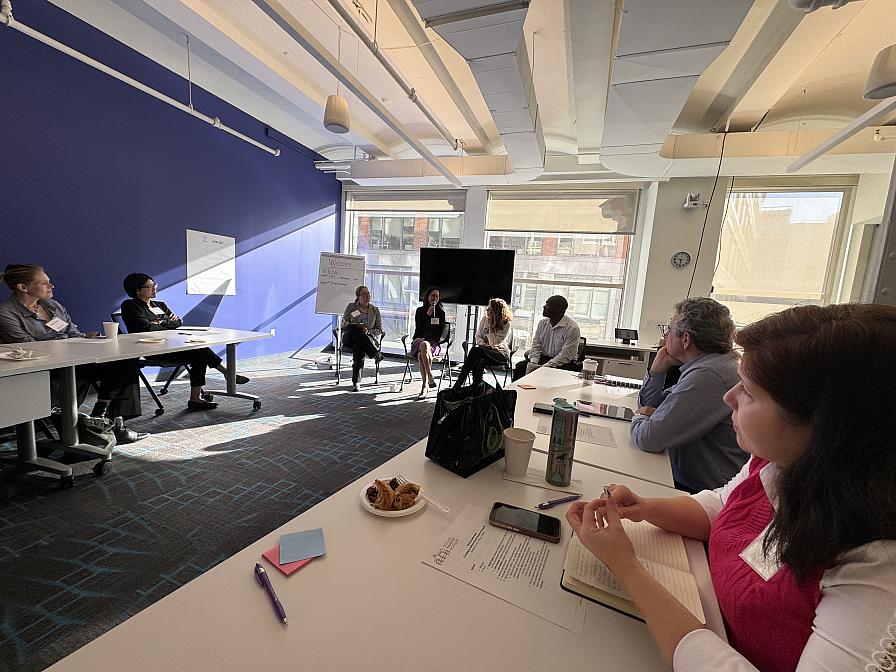
The Social Innovation Forum (SIF) hosted “Moving Upstream: Funding to Address Root Causes of Inequity” this past October as part of the Funder Learning program. Our Funder Learning programming is focused on engaging the funder community in continued learning about how to be more equitable partners with community-led nonprofits.
Funders gathered to share and learn from expert panelists spanning academia, philanthropy, and nonprofit. The discussion addressed why funders should move resources towards “upstream” causes of systemic inequity in addition to funding the organizations that address the immediate symptoms. With so many societal issues impacted by intersecting systems, we discussed how pulling at a single thread is insufficient towards creating the systemic results we hope to see.
Panelists included Susan Eaton, Professor of Practice and Director, Sillerman Center for the Advancement of Philanthropy; Ann Hwang, President, Atrius Health Equity Foundation; and Leon Smith, Executive Director, Citizens for Juvenile Justice. Susan emphasized how funders can make a visual map or representation of how grantees and other stakeholders in the ecosystem are connected to support new partnerships. Ann spoke about Atrius Health Equity Foundation’s goal of closing the life expectancy gap through addressing social determinants of health that they can uniquely fund. Leon drew from his experiences both in direct service as an attorney supporting youth, as well as his upstream efforts to ensure that fewer youth interact with the juvenile justice system.
We discussed the challenge of a false dichotomy between funding to address symptoms of inequity, and funding to address root causes. The panelists spoke about moving from funding only the “what” to also funding the “why.” Susan underscored how funders don’t “just” fund to address symptoms, as the two approaches are not mutually exclusive; rather, both are necessary both independently and together. We discussed how there is not a hierarchy of value when deciding at what level to fund because funding at both levels is critical.
Some funders already address upstream causes of inequity, so they shared with one another ways to deepen impact through funding coalitions doing upstream work. Since issue areas such as education and health have so many interconnected social determinants, coalitions are a key technique funders can rely on to incorporate more perspectives that together will be able to create the impact we hope to achieve. Students need secure housing, access to food, reliable transportation, and other complex social systems to work together, so having multiple stakeholders at the table can allow for a more complete approach to meeting community needs.
All the panelists saw benefits to building coalitions to address root causes, although they also acknowledged the challenges of doing so. Transparently, panelists expressed how coalitions can be messy, and how if a coalition seems too smooth, “they might not be meeting enough.” Although comical, the remark reinforced how more folks at the table leads to a necessary complexity that moves us forward as we address upstream issues. Some of the coalitions uplifted by our panelists were:
- Health Equity Compact
- Equity Now & Beyond
- Massachusetts Coalition for Juvenile Justice Reform
- National Coalition on School Diversity
- Communities Against Hate
- Committee for Education Funding
Through our interactive panel conversation, this event gave funders the opportunity to learn from a variety of perspectives about upstream work and how to deepen their engagement with it. We are grateful to the thoughtful panelists and our engaged participants.
About the Author: Carina Traub is the Funder Learning Manager at the Social Innovation Forum, where she plans programming for funders. She has a deep appreciation for equitable partnerships and is eager to shift power dynamics together.
 Social Innovation Forum
Social Innovation Forum